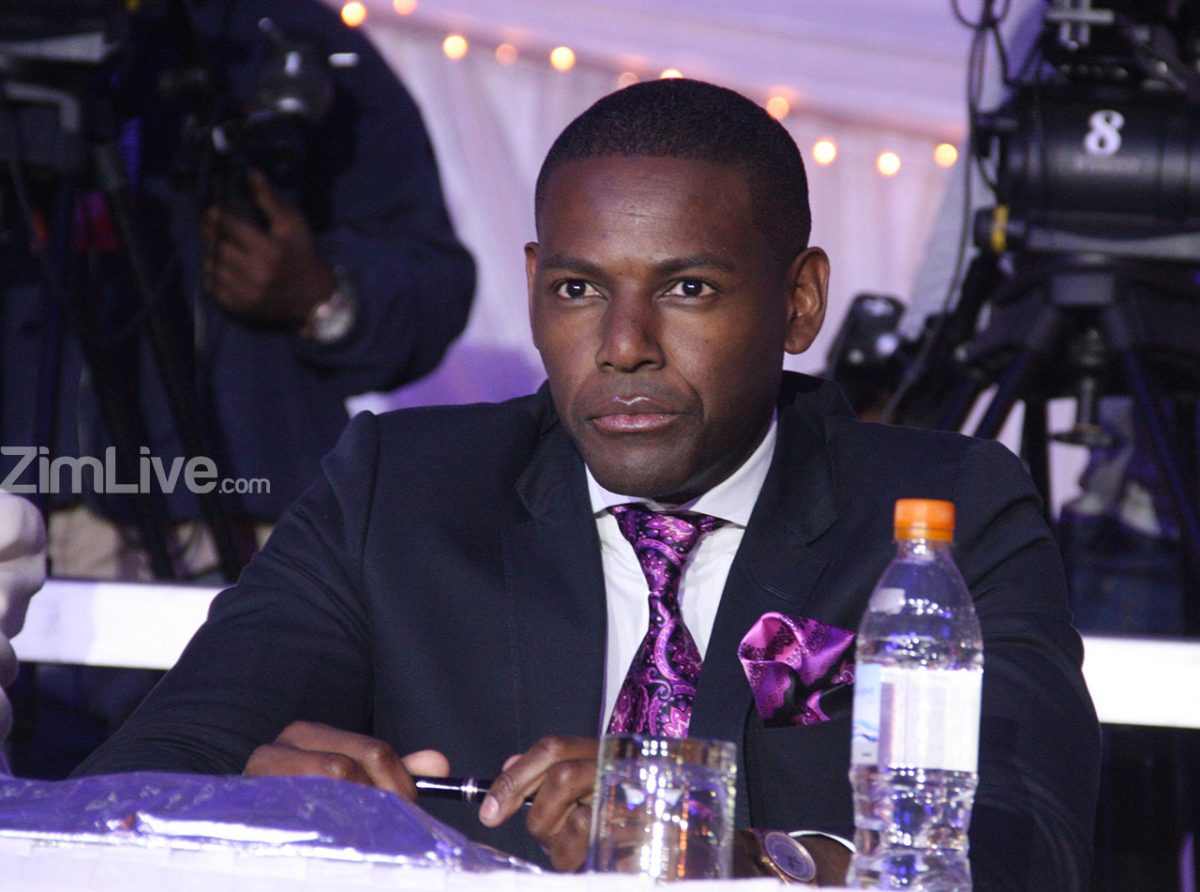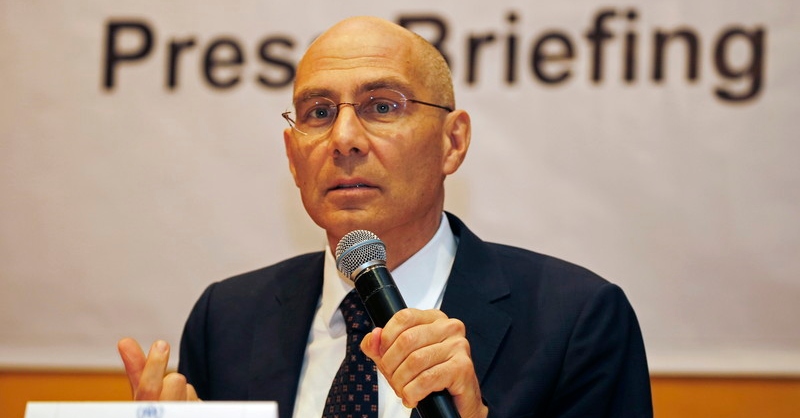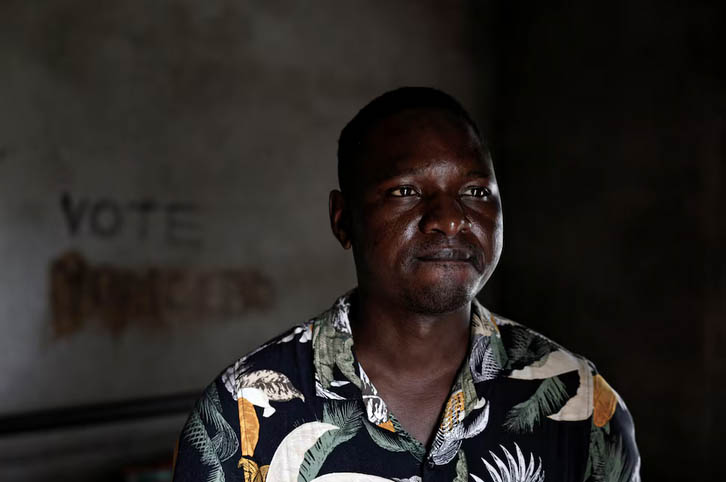HARARE – Fathers must have equal access to their children born out of wedlock as the mothers, the High Court has ruled in a landmark judgement.
The common law rule that gives the mother of a child born out of wedlock sole guardianship and sole custody of a minor child is unconstitutional, Justice Happious Zhou ruled.
Justice Zhou was delivering judgement in an application brought by millionaire property tycoon Frank Buyanga, demanding equal access to his five-year-old son in an application opposed by his ex-girlfriend, Chantelle Muteswa.
“The applicant (Buyanga) be and is hereby granted, together with the respondent (Muteswa), joint guardianship and joint custody of Daniel Alexander Sadiqi, born 14 August, 2014,” Justice Zhou said in a judgement delivered on Thursday.
“The applicant and respondent shall exercise their rights of guardianship in consultation with each other and if a decision of either parent on any matter relating to guardianship is incompatible with the other parent’s wishes and likely to affect the health, life and morals of the child… either party may apply to a judge of the High Court in Chambers for a determination of the course which is in the best interests of the minor child.”
Justice Zhou said a government social worker should interview the child within 30 days, before preparing a report with recommendations on how the couple will exercise joint custody “without disrupting the social life of the child.”
Buyanga and Muteswa will contribute equally to the costs incurred by the social worker, the judge said.
Advocate Thabani Mpofu, representing Buyanga, said the judgement was “quite a significant one in our jurisprudence.”
He told ZimLive: “For children, this judgement means that their best interests are going to be taken into account and the circumstances of their birth have become irrelevant.
“For fathers, this judgement means – and it is ground-breaking in that regard – that all the fathers are now entitled as a matter of law to a parental relationship with their children. They can ask for sole or joint custody, and indeed guardianship, without having to establish exceptional circumstances.
“This is a very progressive judgement that is constitutionally compliant, and one which has taken our law from the clutches of its antiquated historical setting and has made it more responsive to the felt necessities of the time.”
Justice Zhou said common law discriminated against children born out of wedlock “by treating the child as if she or he has no father save for purposes of maintenance.”
The judge added: “The treatment of a father of such a child like any other third party in matters concerning access, custody and guardianship shows that the child was regarded as ‘fatherless’, and deserving of no paternal care or attention save for the purpose of maintenance.
“The child was in essence being regarded as a commodity of some sort given that without rights of access, custody or guardianship, the maintenance contribution was essentially channelled through the mother of the child.
“In practice, the father could pay maintenance for a child that he had never seen in his life and the child would be receiving such a benefit from a person he or she had never seen.
“Because the mother would be the sole guardian and custodian of the child, if she decided that the child should never meet with his or her father, the child would grow up without interacting with his or her biological parent.
“It is unfair discrimination to deny a child benefits of associating with his or her biological father, which is an aspect of parental care, on the mere ground of marital status of the parents at the time that he or she was born.
“The principle of common law in this respect is inconsistent with 81(1)(a) and section 56(1) an (3) of the Constitution of Zimbabwe.”
Section 81(1)(a) provides that every child under the age of 18 “has the right to equal treatment before the law, including the right to be heard.” Section 56(1) provides that “all persons are equal before the law and have the right to equal protection and benefit of the law” and (3) says “every person has the right not to be treated in an unfairly discriminatory manner on such grounds as their… age… or whether they were born in or out of wedlock.”
Said Justice Zhou: “The parties to this matter fully appreciated the importance of establishing and nurturing a parental bond between the applicant and the child hence their agreement on access notwithstanding the prescriptions of the common law.
“However, interaction appears to be losing its value because applicant and respondent spend more time in court arguing about the very same child that they accept is entitled to be brought up by both of them.
“This unending conflict is largely attributable to the fact that the right of access was given benovently by the respondent, not by the law, yet the respondent by virtue of her exclusive right of guardianship and custody has an overriding advantage in deciding on all other matters concerning the child without consulting the applicant who is not only the father of the child but has been introduced into the life of the child since birth.”
The judge said the right of care by both parents is enshrined in the constitution.
“Care means more than just channelling monetary maintenance to the child through the mother. It entails the opportunity to influence and shape the personality, character and life of the child by spending time with the child and being involved in making choices about the child’s life and future.
“There are compelling arguments for abolishing the maternal preference by allowing fathers of children born out of wedlock automatic parental rights of access, guardianship and custody.
“For these reasons, a rule of that pretends that a child born of unwed parents has no father must be abolished as it violates the anti-discrimination provisions and values of the 2013 Constitution of Zimbabwe.
“There is, therefore, no legal obstacle to the granting of joint guardianship and joint custody between the applicant and respondent in respect of the minor child. It seems to me that it is in the best interests of the child that these rights be exercised jointly. The parties must take back their egos and consider the welfare of the child. They must not use the child to resolve their other differences.
“For avoidance of doubt, it is important for the court to declare the legal position in respect of the rule of the common law regarding the entitlement of unwed fathers to the custody and guardianship of their children.
“The legislature is invited to consider outlawing the use of the term illegitimate in describing children born out of wedlock. That term is pejorative and stigmatises children unnecessarily.”
The judge noted with concern the many lawsuits involving Buyanga and Muteswa over the child.
“The court is concerned at the effect that such litigation has or may have on the child,” Justice Zhou said, while ordering that a social worker should be engaged to interview the boy to assess the extent, if any, to which the litigation between the two has affected his social life.















